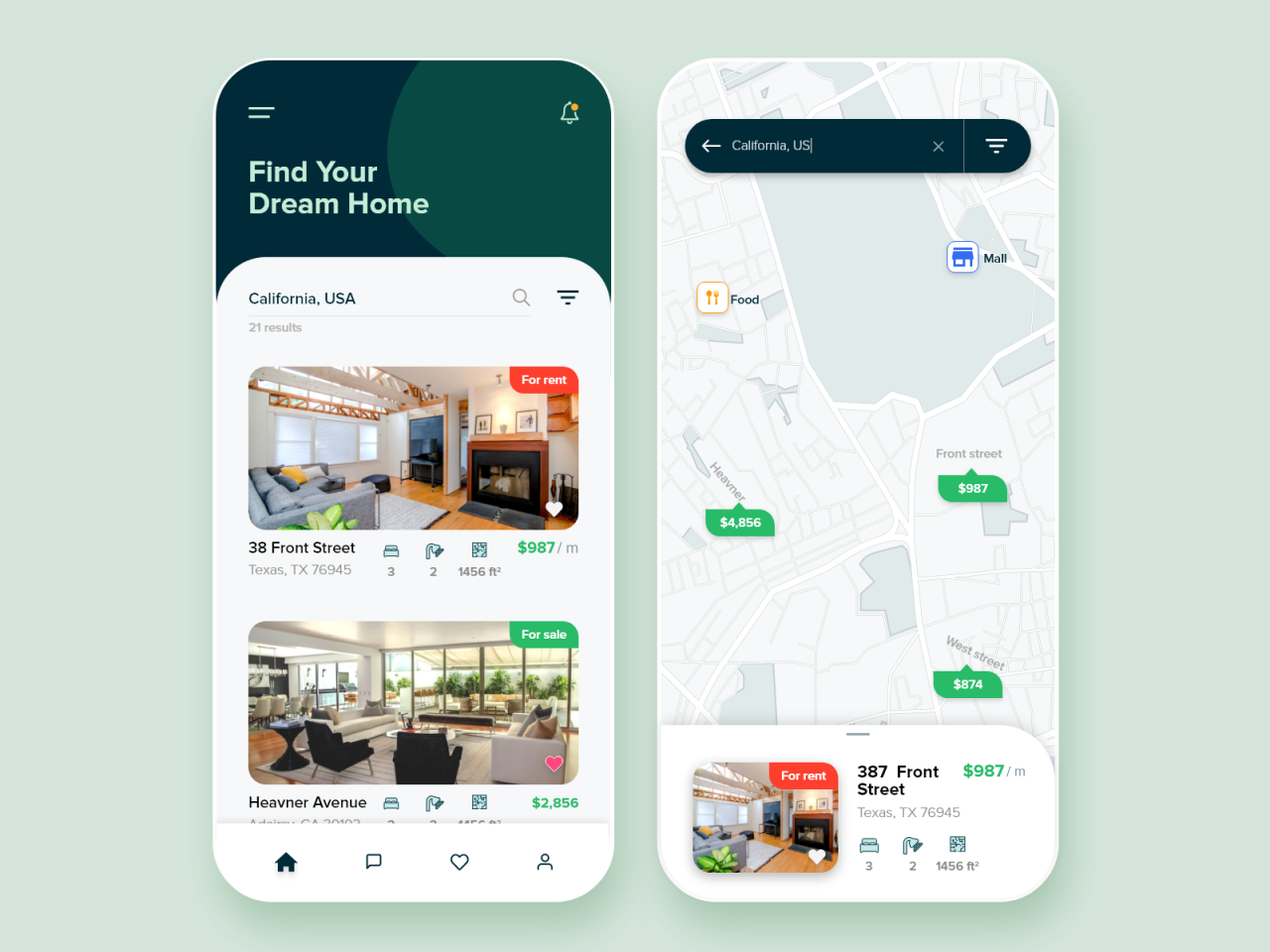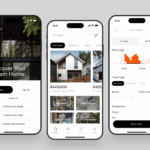Easy software for mobile home real estate agents opens a door to efficiency and opportunity. In a fast-paced industry where every moment counts, having the right tools can transform the way agents operate and serve their clients. The importance of software tailored for mobile home transactions cannot be overstated, as it not only streamlines processes but also enhances communication and data management.
The landscape of mobile home real estate is evolving, and with it comes the necessity for agents to embrace technology. By leveraging easy-to-use software solutions, agents can better navigate their unique challenges, from identifying potential buyers to closing deals seamlessly. This discussion will explore the various types of software available, essential features to look for, and the myriad benefits they bring to mobile home real estate agents.
Overview of Software for Mobile Home Real Estate Agents
In today’s fast-paced real estate market, mobile home agents are increasingly turning to specialized software to enhance their operations. The importance of using software in mobile home real estate cannot be overstated; it streamlines processes, improves efficiency, and ultimately leads to better client satisfaction. In a world where first impressions matter greatly, having the right technological tools at one’s disposal can significantly influence the success of a mobile home agent.The key features that make software easy to use for agents in this niche revolve around intuitive design and functionality tailored specifically to mobile home transactions.
A well-designed software will include user-friendly interfaces, comprehensive property databases, and automated communication tools. These features help agents manage their listings, interact with clients, and keep track of leads seamlessly. Additionally, mobile optimization is crucial; with agents often on the go, having software that functions well on mobile devices is essential for real-time updates and communications.
Benefits of Adopting Technology in Mobile Home Sales
The adoption of technology in mobile home sales brings numerous advantages that can propel agents to new heights of productivity and client engagement. By leveraging software, agents can access a wealth of data and tools that facilitate decision-making and enhance operational capabilities. Below are some of the key benefits that technology brings to the table:
-
Increased Efficiency:
Streamlining administrative tasks leads to more time spent on client relationships and property showings.
-
Better Organization:
Software can help agents manage multiple listings and clients effortlessly, ensuring that no detail is overlooked.
-
Enhanced Marketing Opportunities:
Agents can utilize digital marketing tools to reach broader audiences through social media and online listings.
-
Data Insights:
Access to market trends and analytics helps agents make informed pricing and marketing decisions.
-
Improved Client Communication:
Automated emails and updates keep clients informed, fostering trust and transparency throughout the buying process.
The integration of technology thus not only simplifies the daily tasks of mobile home agents but also empowers them to provide a higher level of service to their clients.
Types of Software Solutions Available
In the evolving landscape of mobile home real estate, understanding the various software solutions tailored for agents is crucial. These tools streamline processes, enhance customer interactions, and ultimately drive sales. With the right software, agents can manage their listings, connect with potential buyers, and maintain essential records efficiently.Mobile home real estate agents have access to several categories of software that cater specifically to their unique needs.
Each type serves a distinct purpose, from customer relationship management to property listings and financial tracking. The choice of software can significantly influence an agent’s workflow and client satisfaction.
Categories of Software for Mobile Home Real Estate Agents
The following is an overview of the primary categories of software solutions available to mobile home real estate professionals. Each category is designed to address specific operational challenges within the industry.
- Customer Relationship Management (CRM): CRMs help agents manage interactions with clients and streamline communication. They enable agents to track leads, automate follow-ups, and maintain client records.
- Property Management Software: This type of software assists agents in managing listings, tracking property details, and handling rental or sales processes efficiently.
- Marketing Solutions: Marketing platforms provide tools for creating and distributing promotional content, social media management, and email marketing campaigns tailored for mobile home listings.
- Accounting and Financial Management Software: These solutions aid agents in budgeting, invoicing, and generating financial reports, ensuring accurate record-keeping and compliance.
- Mobile Applications: Dedicated mobile apps allow agents to access listings, communicate with clients, and manage tasks on-the-go, enhancing productivity and responsiveness.
Comparison of Software Options
The following table compares various software solutions for mobile home real estate agents based on key features, pricing, and usability. This serves as a guide to help agents select the most appropriate tools for their needs.
| Software | Features | Pricing | Usability |
|---|---|---|---|
| RealEstate CRM Pro | Lead tracking, automated follow-ups, client management | $29/month | User-friendly interface, mobile access |
| HomePro Manager | Property listing management, rental tracking, reporting tools | $49/month | Intuitive design, supports multiple languages |
| MarketMaster | Email marketing, social media integration, analytics | $19/month | Easy to navigate, customizable templates |
| FinTrack Solutions | Invoicing, budgeting, expense tracking | $25/month | Simple setup, robust reporting features |
| AgentGo Mobile App | On-the-go listings, client communication, task management | $9/month | Highly accessible, quick updates |
Popular Software Examples in the Mobile Home Industry
Several software solutions have gained popularity among mobile home real estate agents for their specific functionalities and user-friendly interfaces. Notable examples include:
- RealEstate CRM Pro: Renowned for its comprehensive lead management capabilities and ease of use, making it a favorite among agents.
- HomePro Manager: Preferred for its robust property management features, allowing agents to keep track of multiple listings effortlessly.
- MarketMaster: Favored for its marketing automation tools, which help agents engage clients through effective campaigns.
- FinTrack Solutions: Appreciated for simplifying financial management, making it easier for agents to handle their accounts.
- AgentGo Mobile App: Highly regarded for its convenience and functionality, enabling agents to work efficiently while on the move.
Essential Features to Look For
In the vast landscape of mobile home real estate, where agents navigate the intricate corridors of transactions, having the right software can transform the way they conduct business. The essential features of such software can spell the difference between merely getting by and thriving in a competitive environment. Fostering efficiency, enhancing user experience, and ensuring seamless integration with existing tools are paramount in achieving the success mobile home agents strive for.
Must-Have Features for Efficiency
Selecting the right software involves identifying features that directly contribute to an agent’s productivity. These features should not only streamline daily tasks but also maximize operational efficiency. Notable features to consider include:
- CRM Functionality: A robust Customer Relationship Management system allows agents to track interactions, manage leads, and follow up effectively, ensuring no opportunity slips through the cracks.
- Property Management Tools: Features that enable agents to list, manage, and showcase properties effectively can significantly reduce administrative burdens.
- Document Management: Easy access to necessary paperwork, such as contracts and title documents, helps in speeding up transactions and maintaining organization.
- Marketing Tools: Integrated marketing solutions that allow agents to create campaigns, manage listings, and reach potential buyers through diverse channels can amplify visibility.
Significance of Mobile Accessibility and Integration
In this dynamic field, mobile accessibility is not just a luxury; it is a necessity. Agents often find themselves on the move, needing immediate access to critical information. Software that offers mobile compatibility ensures that agents are equipped to respond promptly to clients and leads.Furthermore, seamless integration with other tools, such as email clients, accounting software, and marketing platforms, enhances operational fluidity.
An interconnected system minimizes manual data entry, reduces the risk of errors, and allows for a holistic view of all transactions.
“The connection between technology and human touch is where true efficiency lies.”
User-Friendly Interfaces and Productivity Impact
A user-friendly interface is crucial in software designed for mobile home real estate agents. Complex systems can lead to frustration and wasted time, while intuitive designs empower agents to perform tasks with ease. Features such as drag-and-drop functionality, customizable dashboards, and straightforward navigation enhance the overall user experience.An easy-to-navigate interface allows agents to focus on what truly matters—their clients and sales—rather than battling with cumbersome software.
Studies indicate that agents who utilize software with a user-friendly interface report higher satisfaction and productivity levels.
“Simplicity in design often leads to brilliance in execution.”
In conclusion, when mobile home agents invest time in selecting software with these essential features, they arm themselves with the tools necessary to not only survive but thrive in the ever-evolving realm of real estate.
Benefits of Mobile-Friendly Software: Easy Software For Mobile Home Real Estate Agents
In the realm of mobile home real estate, the significance of mobile-friendly software cannot be understated. This innovative technology transforms how agents communicate and manage their operations, offering unparalleled convenience and efficiency. With the world increasingly shifting toward mobile solutions, agents who embrace these tools position themselves at the forefront of the industry, ready to seize opportunities that come their way.
Improved Communication with Clients
The integration of mobile-friendly software allows real estate agents to enhance their communication with clients in a seamless manner. By accessing software on mobile devices, agents can respond to inquiries promptly, share listings instantly, and provide updates without the constraints of being tethered to a desk. This immediate responsiveness fosters trust and strengthens relationships.
Instant Messaging and Notifications
Mobile software often includes features for instant messaging and notifications, ensuring that agents can stay connected with clients in real-time.
Video Conferencing Capabilities
With built-in video conferencing tools, agents can conduct virtual meetings directly from their smartphones, making it easier to connect with clients regardless of location.
Document Sharing
Agents can quickly share important documents, contracts, and property details through mobile applications, facilitating a smoother transaction process.
Accessing Software On-the-Go for On-Site Visits
On-site visits are a crucial aspect of mobile home real estate, and mobile-friendly software significantly enhances this experience. Agents can utilize these tools while visiting properties, enabling them to gather information, take notes, and provide immediate feedback to clients.
Property Management Tools
Mobile software often includes property management features, allowing agents to record details about a property while on-site, ensuring that no important information is overlooked.
GPS Integration
Many mobile applications come equipped with GPS functionalities, helping agents locate properties quickly and efficiently, thus saving time and reducing stress during property tours.
Photography and Documentation
Agents can capture high-quality images and videos directly through their mobile devices, providing clients with up-to-date visual documentation of the properties.
Impact of Cloud-Based Solutions on Data Management and Security
Cloud-based mobile software solutions offer a myriad of advantages when it comes to data management and security. These solutions empower mobile home real estate agents to access vital information securely from anywhere, promoting flexibility and efficiency.
Real-Time Data Access
Cloud technology allows agents to access real-time data, ensuring they have the most current information available, which is crucial for decision-making.
Enhanced Security Protocols
Cloud providers typically offer advanced security measures, such as encryption and multi-factor authentication, safeguarding sensitive client information from potential breaches.
Automatic Data Backups
Cloud solutions often include automatic data backups, ensuring that critical information is saved and recoverable in case of hardware failures or other unforeseen events.
Mobile-friendly software is not just a luxury; it is an essential tool that revolutionizes how mobile home real estate agents operate, enhancing communication, efficiency, and security.
Challenges and Limitations of Software Adoption
In the realm of mobile home real estate, the integration of software solutions can be a daunting venture. Agents often find themselves navigating a landscape littered with obstacles, each demanding attention and adaptability. The transition from traditional methods to software-driven processes is not merely a shift in tools but a transformation in the way they conduct business. Among the myriad challenges faced, the reluctance to adopt new technologies stands as a significant barrier.
Many agents may feel overwhelmed by the perceived complexity of software systems. Furthermore, a lack of familiarity often breeds apprehension, leading to resistance against integrating innovative tools that could streamline operations and enhance productivity.
Barriers to Integration
Several factors contribute to the difficulty of integrating new software into existing workflows. Recognizing these barriers is the first step toward overcoming them:
- Resistance to Change: Many agents may be accustomed to traditional practices, creating a fear of the unfamiliar.
- Lack of Technical Knowledge: Not all agents possess the necessary technical skills, which can hinder their ability to effectively utilize new software.
- Cost Concerns: Upfront costs and ongoing fees associated with software solutions can deter agents from making the investment.
- Time Constraints: The busy schedules of real estate agents may leave little room for the time needed to learn new software systems.
Each of these barriers can create significant hurdles, leading to frustration and stagnation.
Software Updates and Training Issues
The journey does not end with initial adoption; it extends into the realm of continuous updates and training. Software solutions are often in a state of evolution, requiring users to keep pace with new features and improvements. This constant change can produce challenges, including:
- Learning Curve: Frequent updates can necessitate ongoing training, which might not be feasible for all agents.
- Compatibility Problems: New versions may not always be compatible with existing hardware or systems, leading to operational disruptions.
- Overwhelming Information: As software evolves, agents may find the volume of new information daunting, complicating their usage.
These issues can lead to a sense of frustration among users, where the promise of efficiency becomes overshadowed by the complexity of adaptation.
Importance of Customer Support
In the face of these challenges, the role of customer support becomes critically important. Effective support services can bridge gaps in knowledge and alleviate the stress associated with software adoption. Key aspects include:
- Accessible Help: Prompt and clear assistance can guide agents through troubleshooting processes, enhancing their confidence in using the software.
- Comprehensive Training Resources: Availability of tutorials, webinars, and other educational materials can empower agents to learn at their own pace.
- Feedback Mechanisms: Strong customer support often involves listening to user feedback, enabling software developers to enhance usability based on real user experiences.
When agents feel supported, they are more likely to embrace the technology, allowing them to focus on what truly matters—serving their clients and closing deals.
“In the world of mobile home real estate, a strong partnership with software providers transforms challenges into opportunities.”
Case Studies of Successful Implementations
In the realm of mobile home real estate, technology has emerged as a transformative force, enabling agents to enhance their operations, streamline processes, and ultimately, increase their sales figures. By examining various case studies of real estate agents who have successfully adopted software solutions, it becomes evident that the right tools can lead to significant improvements in efficiency and profitability.One illuminating example comes from Lisa, an agent based in Florida, who incorporated a mobile-friendly CRM system into her daily operations.
Prior to this implementation, Lisa struggled with tracking client interactions and managing listings. After adopting the software, she reported a staggering 30% increase in sales over just six months. The system allowed her to automate reminders for follow-ups, manage client inquiries in real time, and access analytics that helped her target the right audience more effectively.
Example of a Real Estate Agent’s Success Story
By detailing Lisa’s journey, we can draw various lessons about successful software adoption.
- Increased Efficiency: The CRM reduced the time Lisa spent on administrative tasks, allowing her to devote more time to client relationships and property showings.
- Enhanced Client Engagement: Automated communication tools maintained consistent contact with clients, leading to higher satisfaction and repeat business.
- Data-Driven Decisions: Access to real-time analytics enabled Lisa to adjust her marketing strategies based on performance metrics, improving her return on investment.
Another noteworthy case involves Mark, an agent in Texas who implemented a property management software tailored specifically for mobile homes. Before the software, his workflow was disjointed, relying heavily on spreadsheets and manual tracking. After integrating the new platform, he experienced a 45% reduction in the time spent managing properties and an impressive 50% increase in the number of properties he could handle concurrently.
The software facilitated efficient tenant communications and streamlined maintenance requests, significantly improving overall tenant satisfaction.
Key Takeaways from Mark’s Experience
Mark’s success story provides valuable insights for other real estate agents considering software solutions.
- Streamlined Processes: Centralizing property management into one software package eliminated redundancies and errors that often occurred with manual entries.
- Improved Tenant Satisfaction: Faster response times to tenant requests cultivated a better living experience, which in turn led to lower vacancy rates.
- Scalability: With the right tools, Mark could easily expand his business without the need for additional staff, allowing for sustainable growth.
These case studies highlight the substantial benefits that software solutions can bring to mobile home real estate agents. The stories of Lisa and Mark serve as a testament to how embracing technology not only boosts sales but also enhances operational efficiency, setting a roadmap for others to follow on their journey of digital transformation in real estate.
Future Trends in Software for Mobile Home Real Estate
As the landscape of mobile home real estate continues to evolve, so too does the software that supports it. Emerging technologies are shaping the way agents operate, creating opportunities for enhanced efficiency and client engagement. The integration of innovative solutions is not merely a trend but an imperative for those seeking to thrive in a competitive market. Artificial intelligence (AI) and automation are at the forefront of this transformation, enriching software capabilities and streamlining operations.
These technologies enable predictive analytics, personalized marketing strategies, and sophisticated customer relationship management, thus allowing agents to focus on what truly matters: building relationships and closing deals.
Emerging Technologies Influencing Mobile Home Real Estate Software
The integration of groundbreaking technologies has altered the operational fabric of mobile home real estate. Key technologies shaping this sector include:
- Blockchain Technology: Facilitating secure transactions and transparent property records, blockchain technology enhances trust between buyers and sellers.
- Virtual and Augmented Reality: These technologies allow agents to offer immersive property tours, enabling potential buyers to experience homes without being physically present.
- Big Data Analytics: Leveraging vast datasets enables agents to better understand market trends, buyer preferences, and pricing strategies, thus informing smarter business moves.
- Internet of Things (IoT): Smart homes are becoming increasingly common, and software that can integrate IoT data will appeal to tech-savvy buyers, showcasing property features such as energy efficiency and security.
Role of AI and Automation in Enhancing Software Capabilities
AI and automation play crucial roles in enhancing the functionality of mobile home real estate software, transforming the way agents interact with clients and manage their operations. These technologies bring about:
- Lead Generation: AI algorithms can analyze user behavior and preferences, identifying potential buyers and generating quality leads automatically.
- Personalization: By utilizing machine learning, software can deliver tailored property recommendations based on individual client needs and past behaviors.
- Customer Support: Chatbots and automated responses enhance client interactions, providing immediate assistance and freeing agents to focus on strategic tasks.
- Process Automation: Routine tasks such as document management, appointment scheduling, and follow-ups can be automated, significantly improving operational efficiency.
Predictions for the Future of Software Usage among Mobile Home Agents
As the industry adapts to technological advancements, the future of software usage among mobile home agents is poised for substantial growth. Predictions include:
- Increased Adoption of AI: With nearly 50% of real estate agents expected to use AI-driven tools by 2025, the reliance on machine intelligence to streamline operations will become the norm.
- Cloud-Based Solutions: The shift to cloud-based software will continue, offering flexibility and scalability for agents operating in diverse environments.
- Smart Integration: Future software will likely integrate seamlessly with various platforms, allowing agents to manage listings, communicate with clients, and analyze market data all in one place.
- Enhanced Mobile Capabilities: As mobile usage surges, software designed with mobile-first principles will dominate, ensuring that agents can operate effectively from anywhere.
“The future of mobile home real estate lies not just in the homes we sell but in the technology that empowers us.”
Resources and Support for Agents

In the ever-evolving landscape of mobile home real estate, having the right tools is essential, but knowing how to utilize them effectively is equally important. Agents require access to resources that enhance their understanding of software, allowing them to harness its full potential. The following discussion will spotlight valuable resources and support mechanisms that can empower agents in their journey.
Reviews and Tutorials on Software Options
The quest for the ideal software can be daunting; however, numerous platforms provide insightful reviews and tutorials to guide agents through their choices. Agents can explore review sites such as G2 and Capterra, where feedback from real users illuminates the pros and cons of various software solutions. These platforms often rank software based on usability, customer service, and features, providing agents with a clear picture of what to expect.In addition to reviews, platforms like YouTube and dedicated real estate blogs offer a plethora of tutorials.
These tutorials often encompass everything from initial setup to advanced functionalities, making it easier for agents to familiarize themselves with new software. Engaging with these resources can significantly reduce the learning curve and foster greater confidence in using new tools.
Training Programs for New Software Users
Proper training is the cornerstone of successful software adoption. Many software companies provide training programs designed specifically for new users. These programs vary from live webinars to on-demand video courses, accommodating different learning preferences. For instance, some popular software solutions offer structured training sessions that not only cover basic functionalities but also delve into advanced features that can maximize productivity.Additionally, online learning platforms such as Coursera and Udemy often feature courses tailored for real estate professionals.
Agents can benefit from these courses, which cover important aspects of software applications relevant to mobile home transactions, thereby enhancing their operational efficiency.
Importance of Community Forums and Peer Support, Easy software for mobile home real estate agents
The journey of mastering new software is often less daunting with the support of a community. Community forums, such as those found on Reddit or specialized real estate platforms, offer agents a space to share experiences, troubleshoot issues, and exchange tips. This peer support can prove invaluable, as agents can learn from one another’s successes and challenges.Active participation in these forums allows agents to build a network of contacts who can provide advice and encouragement.
Furthermore, many software companies host their own forums where users can ask questions directly, fostering a sense of community and collaboration among users. By leveraging these resources, mobile home real estate agents can enhance their proficiency in software usage, leading to improved outcomes in their professional endeavors.
Wrap-Up
In conclusion, the journey towards adopting easy software for mobile home real estate agents is one filled with potential for growth and increased efficiency. By understanding the available solutions and their features, agents can significantly enhance their productivity and client relationships. As the industry continues to change, staying ahead with the right tools will empower agents to not only meet but exceed their clients’ expectations.




